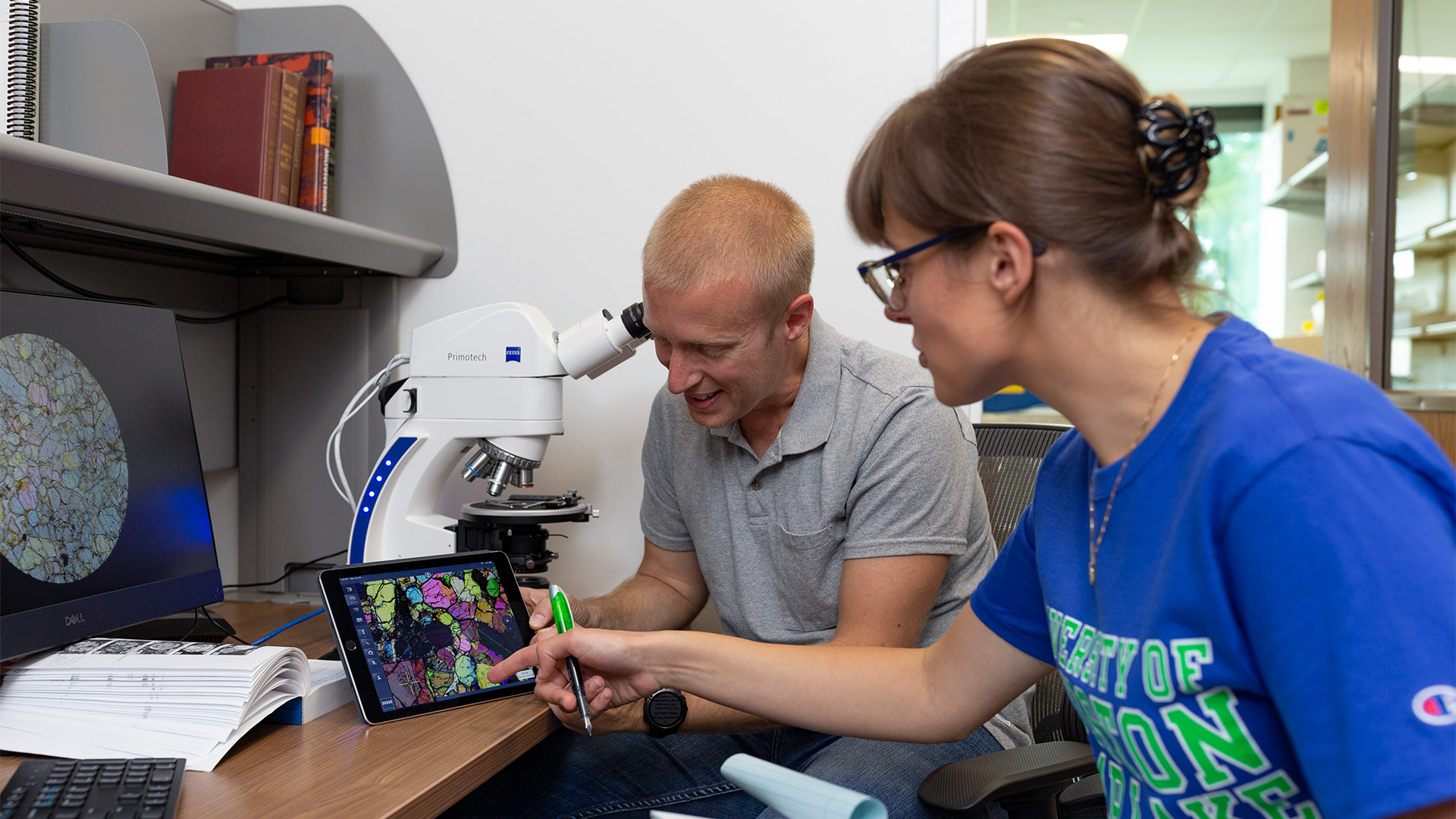- Future Students
- How to Apply
- Visit UHCL
- Admitted Students
- Tuition, Costs and Aid
- Degrees and Programs
- Contact Admissions
- Current Students
- Class Schedule
- Academic Calendar
- Advising
- Events
- Library
- Academic Resources and Support
- Student Services and Resources
- Alumni
- Lifetime Membership
- Alumni Events
- Update Your information
- Awards and Recognitions
- Give to UHCL
UHCL researchers to study meteorites from Mars with Barrios funding
July 6, 2021 | UHCL Staff

Barrios Technology, a NASA contractor, has awarded University of Houston-Clear Lake's Associate Professor of Geology and Environmental Science Daniel Imrecke a $2847 fellowship to help fund a new field of his research.
Currently, Imrecke has been working in the areas of structural geology, petrology and petrography. "I'm embarking on a new field, but I'm able to bring a lot of the tools from my previous research into this," he said. "I'm researching planetary geology, specifically the study of meteorites from Mars."
As a structural geologist, Imrecke has previously employed his knowledge to understand the origin and evolution of mountain ranges. Structural geology, in its most basic form, is about how rocks respond to stress.
"Some meteorites have experienced significant stress because they are ejected from other bodies in the solar system," he said. "This is what I'm studying. I'm looking at the changes the minerals have undergone as a result of the deformation that occurs during ejection. We're looking at the petrography, the minerology, and the geochemistry of those rocks."
He added that his research was being done in collaboration with the scientists at the Lunar Planetary Institute, located very close to both Johnson Space Center and the UH-Clear Lake campus.
"It's the development of this collaboration that will allow for more UHCL students to get involved with planetary science projects," he said.
Imrecke said he would be completing his research with Ane Slabic, who is working toward her Master of Science in Environmental Science with Specialization in Environmental Geology.
"I'll be analyzing the samples for this project," Slabic said. "The samples have all been subjected to a variety of shock, from virtually no shock present to highly shocked and complex samples. We have four samples, three from Mars and one from Earth, that we will be investigating and we'll be finding out how shock affects the chemistry of these samples by analyzing and interpreting their physical and chemical data."
The goal of collecting this data, Imrecke continued, is to get quantitative geochemical analyses of phosphate minerals in meteorites. "It's useful for the broader planetary geology community to have this data because not much is known about the shock effects of the distribution of elements within those minerals," he said. "Interpretations might be skewed in a way that isn't telling the full story about planetary processes."
He said the research would ultimately be published, and the primary purpose beyond the work was to get seed money for further studies on this topic. "The Barrios funds help get the ball rolling in a broader planetary geology focus that students can take at UHCL," he said.
For more information about UHCL's Environmental Science program, go online.






